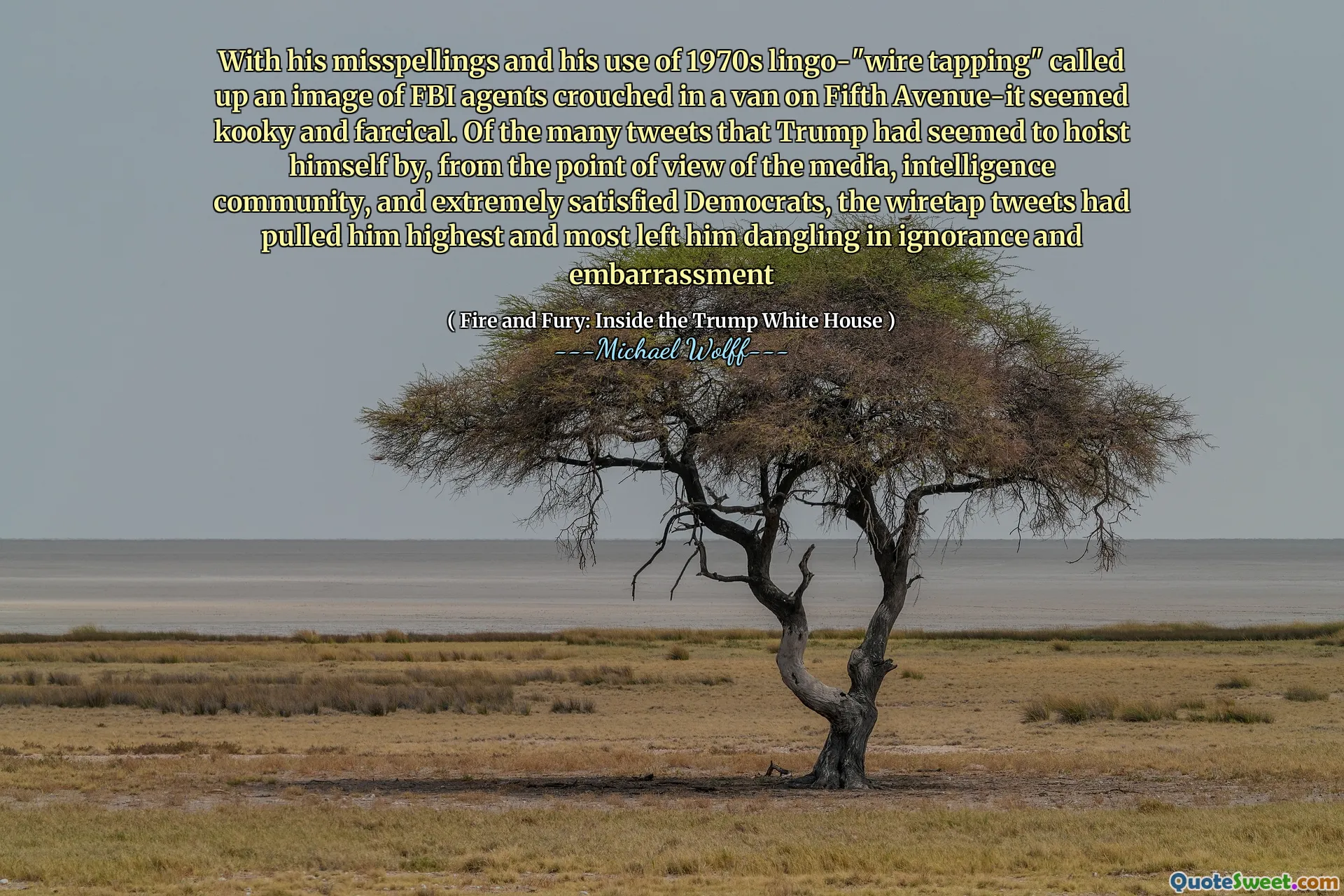
With his misspellings and his use of 1970s lingo-"wire tapping" called up an image of FBI agents crouched in a van on Fifth Avenue-it seemed kooky and farcical. Of the many tweets that Trump had seemed to hoist himself by, from the point of view of the media, intelligence community, and extremely satisfied Democrats, the wiretap tweets had pulled him highest and most left him dangling in ignorance and embarrassment
The portrayal of Trump's tweets about wiretapping in Michael Wolff's "Fire and Fury: Inside the Trump White House" illustrates how these misspellings and outdated terms created a comical and absurd image. The mention of "wire tapping" conjured up notions of clandestine operations reminiscent of 1970s FBI dramas, making his claims appear more ridiculous than serious. This farcical representation contributed to the perception that he was out of touch and misinformed.
These tweets, particularly regarding wiretapping, became a significant point of contention for the media and political opponents, creating a palpable sense of embarrassment for Trump. His inability to grasp the gravity of his statements left him vulnerable to criticism from the intelligence community and satisfied Democrats, who saw this as an opportunity to undermine his credibility. Thus, the wiretap tweets encapsulated a moment where Trump’s rhetoric not only backfired but also highlighted his lack of understanding surrounding complex political issues.











